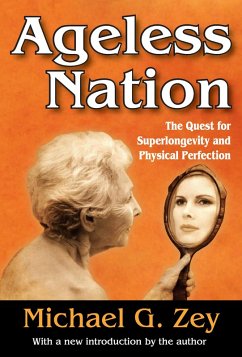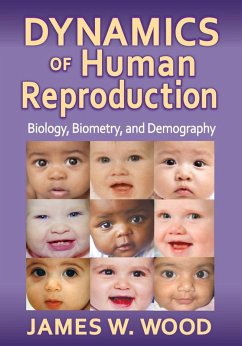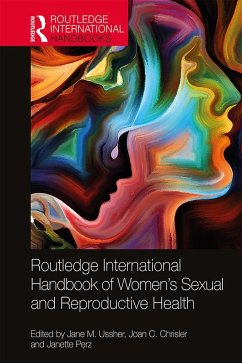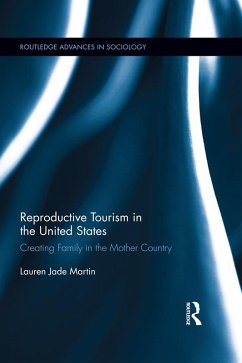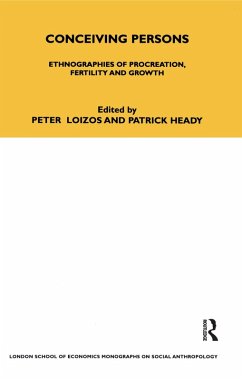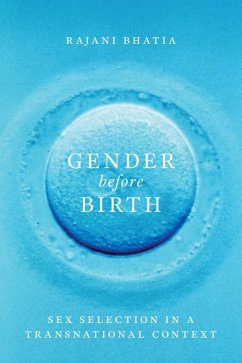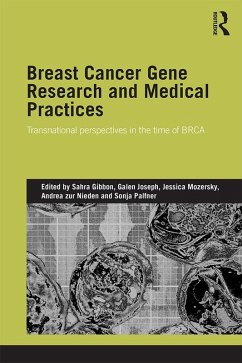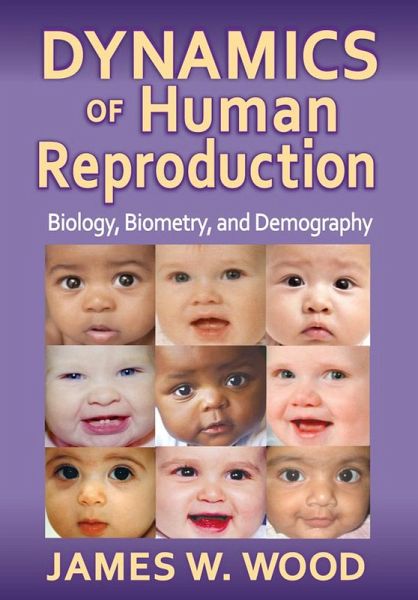
Dynamics of Human Reproduction (eBook, ePUB)
Biology, Biometry, Demography
Versandkostenfrei!
Sofort per Download lieferbar
57,95 €
inkl. MwSt.
Weitere Ausgaben:

PAYBACK Punkte
29 °P sammeln!
Awarded the W. W. Howells Award for the Outstanding Book in Biological Anthropology, this volume presents a comprehensive, integrated, and up-to-date overview of the major physiological and behavioral factors affecting human reproduction. In attempting to identify the most important causes of variation in fertility within and among human populations, Wood summarizes data from a wide range of societies. Trained as an anthropologist as well as a demographer, he devotes special attention to so-called ""natural fertility"" populations, in which modern contraceptives and induced abortion are not us...
Awarded the W. W. Howells Award for the Outstanding Book in Biological Anthropology, this volume presents a comprehensive, integrated, and up-to-date overview of the major physiological and behavioral factors affecting human reproduction. In attempting to identify the most important causes of variation in fertility within and among human populations, Wood summarizes data from a wide range of societies. Trained as an anthropologist as well as a demographer, he devotes special attention to so-called ""natural fertility"" populations, in which modern contraceptives and induced abortion are not used to limit reproductive output. Such an emphasis enables him to study the interaction of biology and behavior with particular clarity.The volume weaves together the physiological, demographic, and biometric approaches to human fertility in a way that will encourage future interdisciplinary research. Instead of offering a general overview, the focus is to answer one question: Why does fertility and the number of live births vary from couple to couple within any particular population, and from population to population across the human species as a whole?Topics covered include ovarian function, conception and pregnancy, intrauterine mortality, reproductive maturation and senescence, coital frequency and the waiting time to conception, marriage patterns and the initiation of reproduction, the fertility-reducing effects of breastfeeding, the impact of maternal nutrition on reproduction, and reproductive seasonality. This unique combination of comprehensive subject matter and an integrated analytical approach makes the book ideally suited both as a graduate-level textbook and as a reference work.
Dieser Download kann aus rechtlichen Gründen nur mit Rechnungsadresse in A, B, BG, CY, CZ, D, DK, EW, E, FIN, F, GR, HR, H, IRL, I, LT, L, LR, M, NL, PL, P, R, S, SLO, SK ausgeliefert werden.





